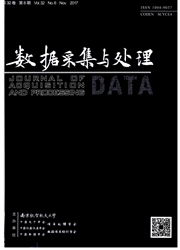

 中文摘要:
中文摘要:
压缩感知技术在许多领域都有广阔的应用前景。压缩感知关键技术主要包括稀疏矩阵的选取,观测矩阵的构造以及重构算法的设计。语音信号不同于一般信号,通常在观测矩阵和重构算法中有特殊的结构特征。在实际的应用中,噪声难以避免,而压缩感知系统中,重构系统是非线性的,且对噪声敏感,因而研究具有抗噪能力的鲁棒性压缩感知系统具有重要意义,也是压缩感知技术能否真正实用的关键之一。本文首先介绍了压缩感知的基本概念,然后分析各种噪声对压缩感知带来的影响,侧重从语音信号的观测矩阵和重构技术入手,介绍具有鲁棒性的压缩感知投影算子和重构算法,最后对未来可能的研究方向进行了展望。
 英文摘要:
英文摘要:
Compressed sensing(CS)is widely used in different areas.The key technologies of compressed sensing include the selection of sparse matrix,the construction of the measurement matrix,and the design of the reconstruction algorithm.Speech signal usually has special structural characteristics in the measurement matrix and reconstruction algorithm.In actual applications,noises may inevitably exist.In compressed sensing theory,the reconstruction system is nonlinear and sensitive to noise.Therefore,we need to study the robust compressed sensing technology.This technique would have utilizable perspective,if the robustness problem gets solved.The paper begins with the concept of compressed sensing,then analyses the effects brought by various noises.When it comes to the solutions to the noises in the speech signal,this paper focuses on the introduction of robust projection operator and robust recovery algorithms.Finally,the possible future research directions are prospected.
 同期刊论文项目
同期刊论文项目
 同项目期刊论文
同项目期刊论文
 期刊信息
期刊信息
